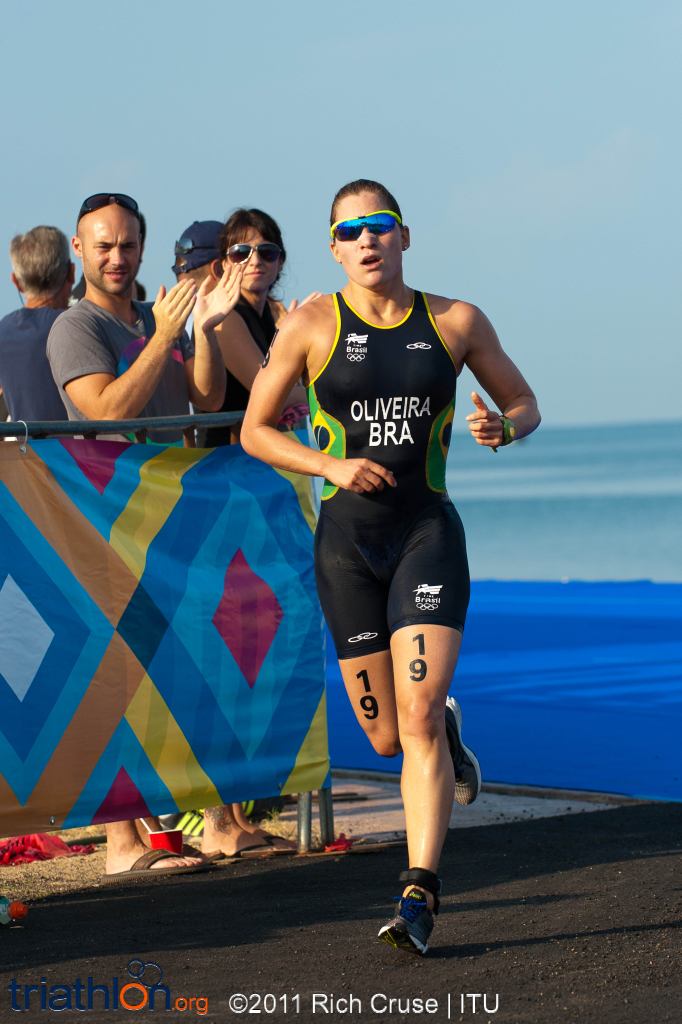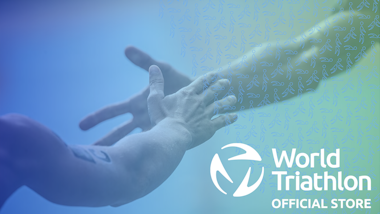Brazil's Pamella Oliveira has unfinished business at Olympics
24 July, 2015 | español
It is an honour and a privilege to representing your nation in front of the entire world. But what is even more remarkable, is the opportunity to compete for your country in front of a home crowd. With eyes set to next summer, Brazil’s Pamella Oliveira is hoping to do just that at the 2016 Rio de Janeiro Olympic Games.
As one of seven Brazilian women listed on the start list for the 2015 Rio de Janeiro ITU World Olympic Qualification Event, Oliveira is one of the strongest athletes toeing the line for the host country. And sitting at 19th in the overall ITU point rankings, she is setting herself up in a strong position to impress her country.
 Like many elite triathletes, Oliveira did not grow up solely on the sport of triathlon. She did however, grow up in swimming. Starting at the age of five, she swam competitively at a high level in open water. She competed nationally around Brazil and her hometown of Vila Vehla for many years, until she finished her career at 20 years old. It was after her stint in swimming, that she became introduced and eventually interested in triathlon.
Like many elite triathletes, Oliveira did not grow up solely on the sport of triathlon. She did however, grow up in swimming. Starting at the age of five, she swam competitively at a high level in open water. She competed nationally around Brazil and her hometown of Vila Vehla for many years, until she finished her career at 20 years old. It was after her stint in swimming, that she became introduced and eventually interested in triathlon.
“After swimming 14 years at the competitive level, my motivation was not the same anymore. Then the place that I was swimming, there was triathletes training, so I became interested in trying the sport and eventually I loved it,” said Oliveira.
Her swimming background means the first leg of triathlon comes naturally for the Brazilian, but her abilities in the bike and run also flowed as organically as if she had done the sport her whole life.
“I never came from cycling, it has all come from triathlon training. I feel my ability came from myself—I am very powerful. I was a really strong butterfly swimmer, so from the start I was able to turn into a very strong rider,” said Oliveira, who has become one of the strongest cyclists on the elite women’s circuit. “But while I am good compared to some of the girls, I feel like I have a lot of work to do.”
Mastering all disciplines early on helped her to set her sights on competing at the international level. Just one year after starting the sport, Oliveira improved so quickly that got her shot at elite competition at the 2008 Under23 World Championships in Vancouver, an infamous race known for its cold weather conditions.
“I did not finish that race because I was lapped on the bike. I was really upset because I wanted to finish, but I was lapped because I was freezing. I was not even able to change gears or break, it was really hard for me because of how cold it was.”
Despite her DNF in her first major race, she remembers that race to this day and uses the memory as a form of motivation. 
“It did serve as motivation for me. I was leading in the swim and was in the front pack out of the water, so I thought that if I could improve on the bike and then on the run I could fight. So that is when I knew that with international girls at the international level, that was the level I needed to compete in—not just the national level.”
Now Oliveira is a veteran in the sport and has been Brazil’s strongest asset in the ITU circuit for the past several years. In her career, she’s managed to win a World Cup title, score bronze at the 2011 Pan American Games and several top 10 finishes in the World Triathlon Series. She also qualified to represent Brazil at the 2012 London Olympics.
During the race, Oliveira set herself up perfectly out of the swim, as she was one of six women to lead out of the water. But a crash early on the bike caused Oliveira to lose her strong advantage. While she was able to recover and finish the race, the spill meant her finish wasn’t as high as she hoped for. Now, as she looks to the next year for training and planning towards Rio, she wants to be able to rewrite her story.
“When I crossed the finish line and had realized what had happened with the crash, I was really sad because in my first experience in an Olympic Games I had wanted to do something completely different. So I knew that in four years, the next Games in Brazil, I was going to do something different. It is unfinished business for me. When I start the race again, I will do everything I can to be in the lead pack again and if I can run with them, anything is possible.”
Oliveira does not currently reside in her home country. In order to distance herself from the local media and spotlight, she trains all over the world as she travels internationally to compete in the ITU World Triathlon Series.
“I feel the distance now because I travel so much, but that is a positive feeling for me because I can train and prepare myself and not be so close to the media and be so exposed in my home country. But I react very well when I race in Brazil and it gives me extra motivation. If I end up at the top, that will be even better when I am there because when I am racing among the Brazilian people that reach to the thousands—I always feel better.”
Besides the support of the spectators, another advantage for Oliveira is that she has swum in the Copacabana waters before in the Military Games and knows the course a little. She knows that the waters will be choppy and feel cold because of the hot air temperatures and that if you do well in the wavy open water you should do well heading into transition.
Furthermore, Oliveira has proven herself a fierce competitor in similar race conditions that served up ocean swims, hilly courses and high temperatures. With the crowd behind her, it could just be Brazil’s day in the sun as the athletes take to the Copacabana on Sunday.
tags
Array {tag_name} {/tags}





